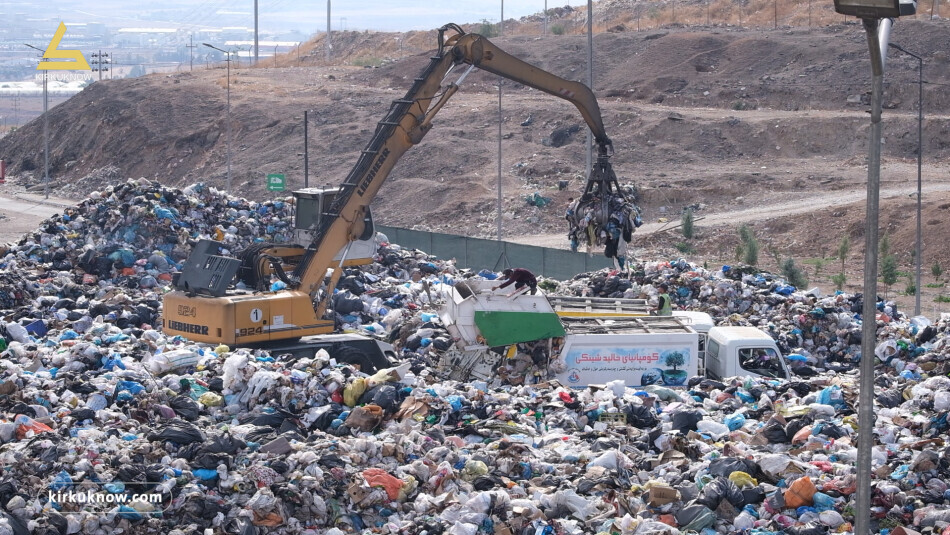
A gynecologist and fertility specialist has expressed concern about declining fertility in men and women in Iraq due to the widespread use of plastic, stating that it directly affects hormones and weakens fertility.
The United Nations UN warns of the dangers of plastic on fertility, hormonal activity, and the brain, as burning plastic waste leads to air pollution. A report by the UN indicated that 460 million tons of plastic are produced annually, and by 2050, the oceans may contain more plastic than fish unless people stop using single-use plastics such as plastic bags and bottles.
Dr. Dilovan Mohammed Ali told KirkukNow, “All environmental pollution, whether through food, chemical emissions, or factory waste, affects the reproductive health of women and men, especially plastic, which is directly linked to infertility in women and men.”
“Environmental pollution and plastic waste lead to hormonal disruption and weakened fertility, which applies to both men and women,” she added. However, due to the lack of sufficient data and research, she stated, “we cannot say for sure that environmental pollution is one of the causes, but international research conducted by reliable organizations indicates that environmental pollution is one of the causes of infertility in women and men.”
For example, in the city of Sulaimaniya, more than 1,300 tons of waste are piled up daily in the Tanjaro area south of the city, causing many toxic and harmful substances to mix with the Tanjaro water, which then flows into Lake Darbandikhan before being treated.
A study by the Azadbon Organization for Sustainable Development indicates that 60 percent of this waste is food waste and 20 percent is plastic.

Image of a couple holding pregnancy test. GoodStudio/Shutterstock.com.
There are no accurate statistics on the number of women and men affected by infertility in Iraq, but those who suffer from it are constantly searching for the causes.
Arzu Mohamad (41) says she has given up on her dream of motherhood, without doctors ever explaining to her why she has been unable to conceive for 16 years.
“In 2019, doctors told me that the best solution was in vitro fertilization, for which I spent $5,000, but miscarried after 45 days because the fetus's heart was not beating,” Arzu says.
Dr. Ali explained that blocked fallopian tubes, high blood pressure, and diabetes are among the causes of infertility in women. These factors affect the ovaries and lead to hormonal imbalances, and environmental pollution plays a role in the development of these diseases.
Ninety percent of the world's population breathes polluted and unhealthy air, including Iraq, which is considered one of the “most polluted” countries, according to data from IQAir, a Swiss company which specializes in air quality technology.
Marouf Majid, head of the Ainde (Future) Organization for Environmental Protection told KirkukNow, "Research and studies indicate a link between environmental pollution and infertility, especially in men. Micro particles and certain gases may affect sperm quality. Exposure to noise, which is part of environmental pollution, may also be linked to an increased risk of infertility, especially with advancing age."